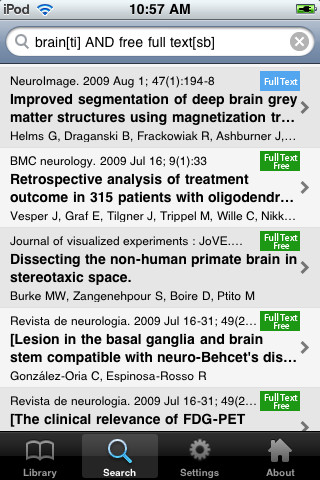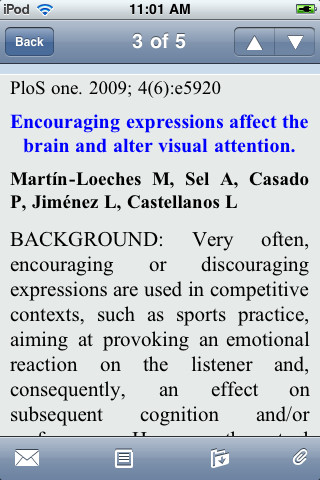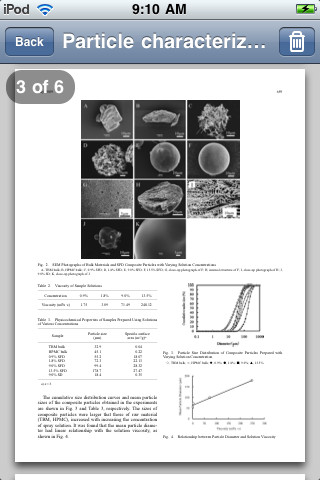PubMed is a free database of references and abstracts on life sciences and biomedical topics. The United States National Library of Medicine (NLM) at the National Institutes of Health maintains the database as part of the Entrez information retrieval system. PubMed was first released in January 1996.
As of 30 December 2011, PubMed has over 21.4 million records going back to 1966; about 500,000 new records are added each year. As of 1 December 2011, 12.3 million articles are listed with their abstracts, and 12.7 articles have links to full-text (of which 3.5 million articles are available full-text for free for any user).
PubMed On Tap enables you to search PubMed. The app keeps a history of past searches. Search results, including those with PDFs, can be emailed. In the pro version you can also configure an advanced search and avoid banner ads.
If you have any questions, you can write to [email protected]
Previews of the app:






